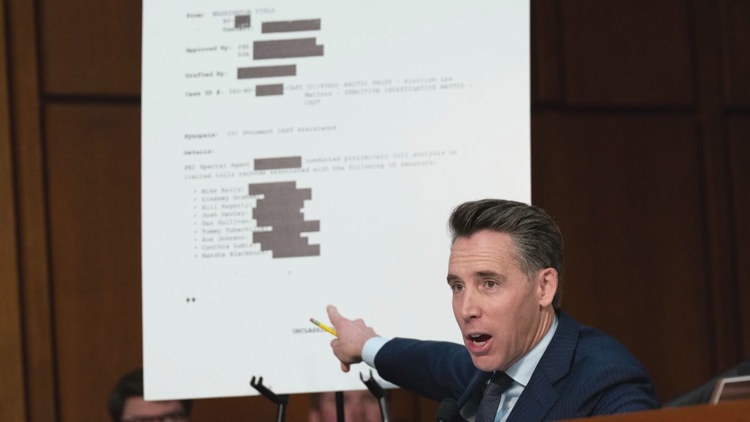A recently passed provision buried within the government shutdown bill could provide significant financial benefits to eight Republican senators. This controversial clause allows senators to sue the U.S. government for at least $1 million each if their phone or digital records were obtained without prior notice by federal investigators. This provision, which is retroactive to 2022, raises ethical questions as it appears to specifically impact senators whose records were subpoenaed during the investigation led by Special Counsel Jack Smith regarding efforts to overturn the 2020 presidential election.
The provision’s text specifies that “any senator whose Senate data…has been acquired, subpoenaed, searched, accessed, or disclosed in violation of this section may bring a civil action against the United States.” Senators could potentially claim two separate violations for each case—one for the subpoena and another for the nondisclosure order—putting the total at a minimum of $1 million per senator, funded by U.S. taxpayers.
The eight senators likely to benefit from this provision include: Lindsey Graham of South Carolina, Bill Hagerty of Tennessee, Josh Hawley of Missouri, Dan Sullivan of Alaska, Tommy Tuberville of Alabama, Ron Johnson of Wisconsin, Cynthia Lummis of Wyoming, and Marsha Blackburn of Tennessee. Critics have expressed outrage over this clause, arguing it allows lawmakers to enrich themselves through a process that should protect the public interest.
Concerns Raised by Lawmakers
Democratic Representative Johnny Olszewski of Maryland criticized the provision, stating, “It allows senators to write themselves, and only themselves, million-dollar checks because their phone records were legally subpoenaed.” He characterized the provision as “corruption at a whole new level.”
Fellow Democrat Alexandria Ocasio-Cortez of New York echoed these sentiments, highlighting the stark contrast between the financial windfall for senators and the challenges faced by ordinary Americans. “How is this even on the floor?” Ocasio-Cortez questioned, emphasizing the moral implications of such legislation, which she believes detracts from critical issues like food assistance and healthcare.
The provision has drawn bipartisan criticism, with several members of Congress expressing their disapproval. Jamie Raskin, the ranking member of the Judiciary Committee, labeled the measure a corrupt “jackpot” inserted at the last minute. During the floor debate, Raskin declared, “This bill…contains the single most corrupt provision for legislative self-dealing that anyone in this chamber today has ever voted on.”
Legal Implications and Next Steps
Notably, this amendment would remove the government’s sovereign immunity, a legal protection that typically shields government law enforcement agencies from such lawsuits. This change could result in guaranteed payouts if any of the affected senators choose to sue, raising serious concerns about the implications for taxpayer finances.
Despite the backlash, House leaders have expressed their intention to proceed with the broader shutdown deal to ensure federal operations resume without delay. They have indicated that they plan to revisit or potentially repeal the controversial section in the near future, possibly as early as next week.
The fallout from this provision is likely to continue as lawmakers and the public grapple with the ethical ramifications of such self-serving legislation. The situation underscores the complexities of government transparency and accountability in an era where trust in political institutions is already waning.






































































